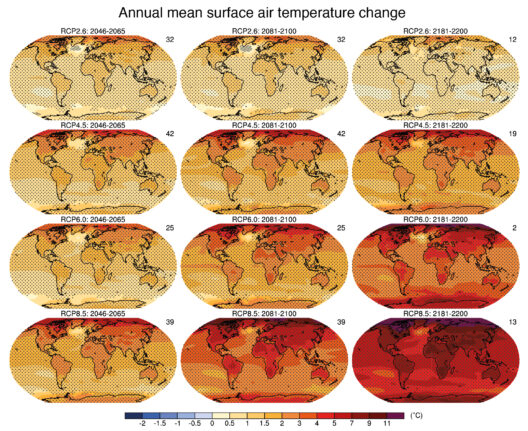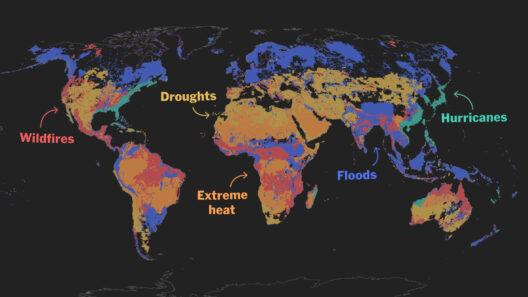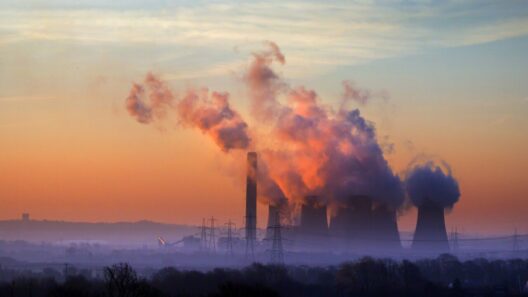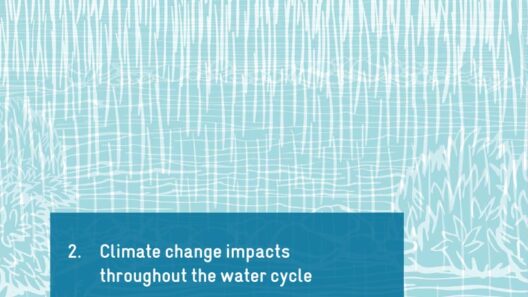Nitrogen, an element that constitutes about 78% of the Earth’s atmosphere, is often hailed as a fundamental building block of life. It plays a crucial role in biological processes, serving as a critical component of amino acids, proteins, and nucleic acids. However, this essential element harbors a dark side that significantly contributes to global warming. Understanding how nitrogen compounds influence climate change illuminates the interconnectedness of our ecological systems and underlines the urgent need for sustainable practices.
To comprehend nitrogen’s contribution to global warming, one must first grasp the nitrogen cycle—an intricate series of processes through which nitrogen moves through the atmosphere, lithosphere, biosphere, and hydrosphere. Widely regarded as a benign gas, molecular nitrogen (N₂) is relatively inert and does not directly contribute to climate change. However, when nitrogen undergoes various transformations, it can produce potent greenhouse gases such as nitrous oxide (N₂O), a substance that poses a formidable threat to the planet.
The formation of nitrous oxide arises primarily from agricultural activities. Fertilizers, particularly synthetic nitrogen fertilizers, are often indiscriminately applied to enhance crop yields. However, the overuse of these fertilizers engenders an alarming unintended consequence: the release of N₂O into the atmosphere. This gas possesses a global warming potential that is approximately 298 times greater than that of carbon dioxide (CO₂) over a century. Disturbingly, agricultural practices account for about 60% of global nitrous oxide emissions, marking an intrinsic link between nitrogen use and climate change.
Additionally, the combustion of fossil fuels unleashes nitrogen oxides (NOₓ) into the atmosphere. These nitrogen oxides, produced during high-temperature combustion processes, do not merely contribute to air pollution; they catalyze atmospheric reactions that yield ozone at ground level, a potent greenhouse gas. As urbanization and industrialization exacerbate the reliance on fossil fuels, the atmospheric concentrations of nitrogen oxides continue to rise, further deepening the crisis of climate change.
While nitrogen is essential for plant growth, the excessive use of nitrogen in agriculture leads to environmental imbalances that provoke eutrophication. The overflow of nitrates into water bodies fosters the rapid proliferation of algae, creating “dead zones” devoid of oxygen, where aquatic life cannot survive. This phenomenon not only reduces biodiversity but also exacerbates climate change by diminishing the ocean’s ability to sequester carbon. The interconnectedness of nitrogen usage and its impact on both terrestrial and aquatic ecosystems underscores the urgency of re-evaluating our nitrogen management strategies.
Critical examination of nitrogen’s role in climate change reveals a multifaceted issue that demands innovative solutions. Agroecological practices, which promote reduced reliance on synthetic fertilizers, provide a sustainable alternative. Techniques such as crop rotation, intercropping, and the use of legumes can enhance nitrogen fixation in soils and reduce N₂O emissions. Furthermore, precision agriculture, which leverages technology to optimize fertilizer application, represents a promising avenue for minimizing nitrogen waste and mitigating its environmental repercussions.
The transformation of land use is yet another significant factor contributing to nitrogen’s dark side. Deforestation and land conversion for agriculture not only deplete natural carbon sinks but also disturb the nitrogen cycle. When forests are cleared, the nitrogen stored in soil and vegetation is released into the atmosphere, often resulting in elevated nitrogen levels in aquatic systems and the ensuing consequences of eutrophication. Restoring these natural ecosystems must become a cornerstone of global efforts to combat climate change, emphasizing the importance of preserving biodiversity and enhancing soil health.
To tackle the challenge posed by nitrogen compounds effectively, a multi-faceted approach that incorporates policy changes, scientific advancements, and public awareness is essential. Governments and international bodies must implement regulations that discourage excessive fertilizer application and promote sustainable agricultural practices. Moreover, investment in research to develop nitrogen-efficient crops, fertilizers with reduced environmental impact, and Methane inhibitors could revolutionize nitrogen management.
Public education plays an equally vital role in addressing this issue. Communities need to be equipped with the knowledge to make informed decisions about food consumption, environmental stewardship, and sustainability. By fostering a culture of respect for the environment, individuals can become advocates for systemic change, focusing on the importance of nitrogen management in mitigating climate change.
In conclusion, while nitrogen is an indispensable element for life, its contributions to global warming through nitrous oxide emissions, nitrogen oxides from fossil fuel combustion, and the ramifications of agricultural practices are alarming. A shift in perspective is essential to recognize the dual nature of nitrogen—both as a facilitator of growth and a potent contributor to climate change. To illuminate this dark side is to grasp the broader implications of our actions and implement strategies that prioritize sustainability and environmental health. The responsibility lies with us—to transform our understanding and reshape our practices in a manner that not only preserves our planet but also fosters resilience in the face of climate challenges.







